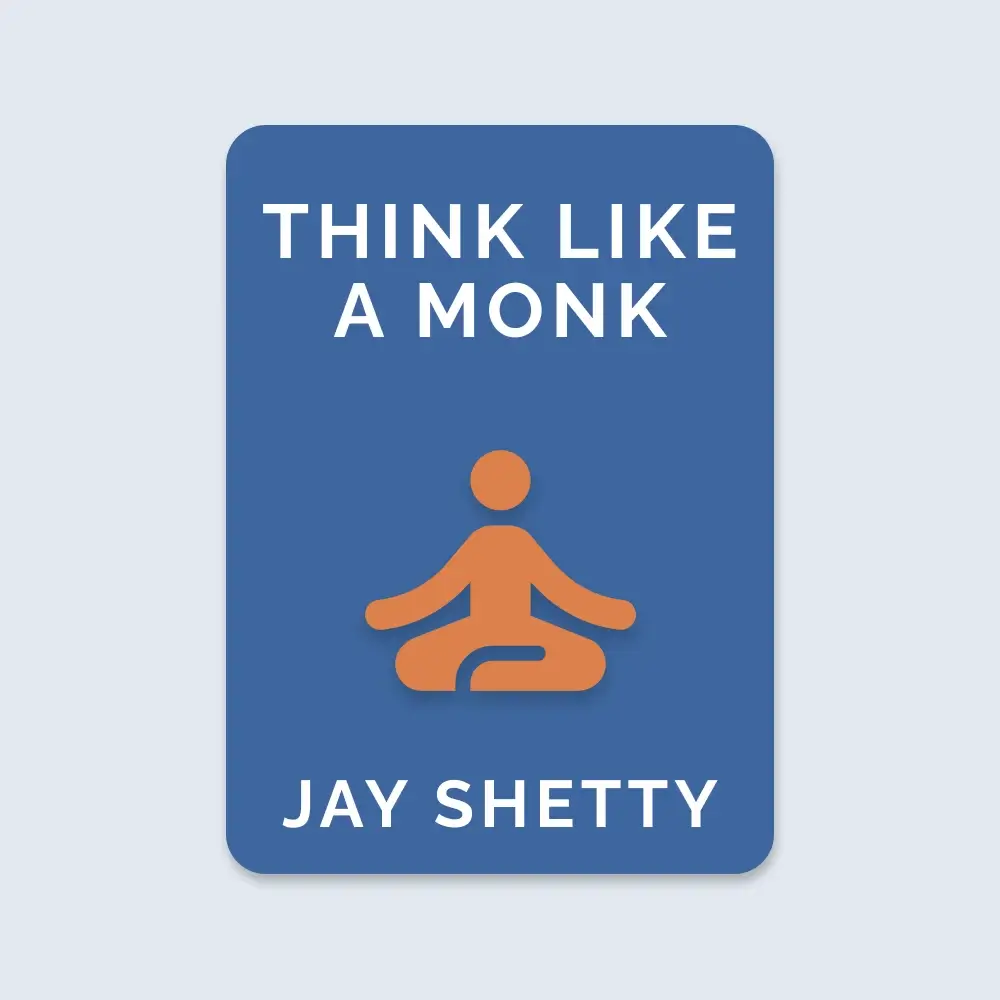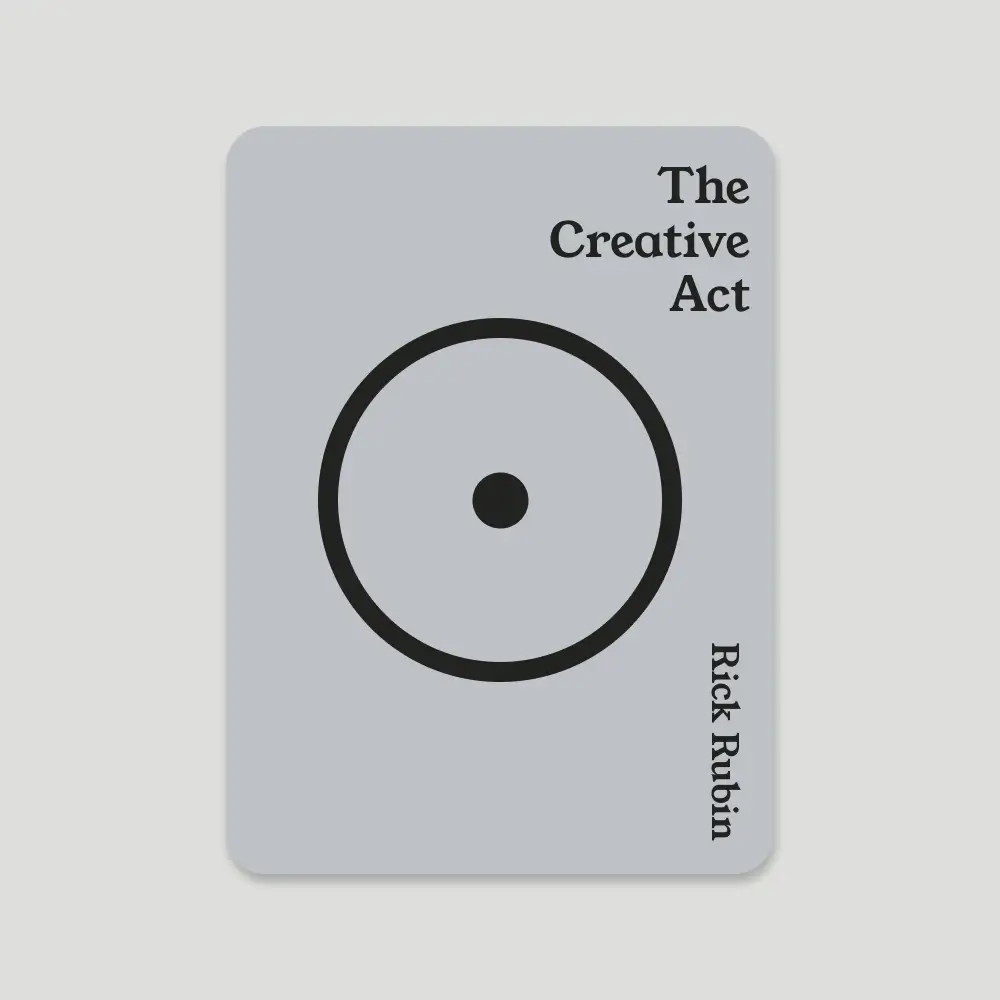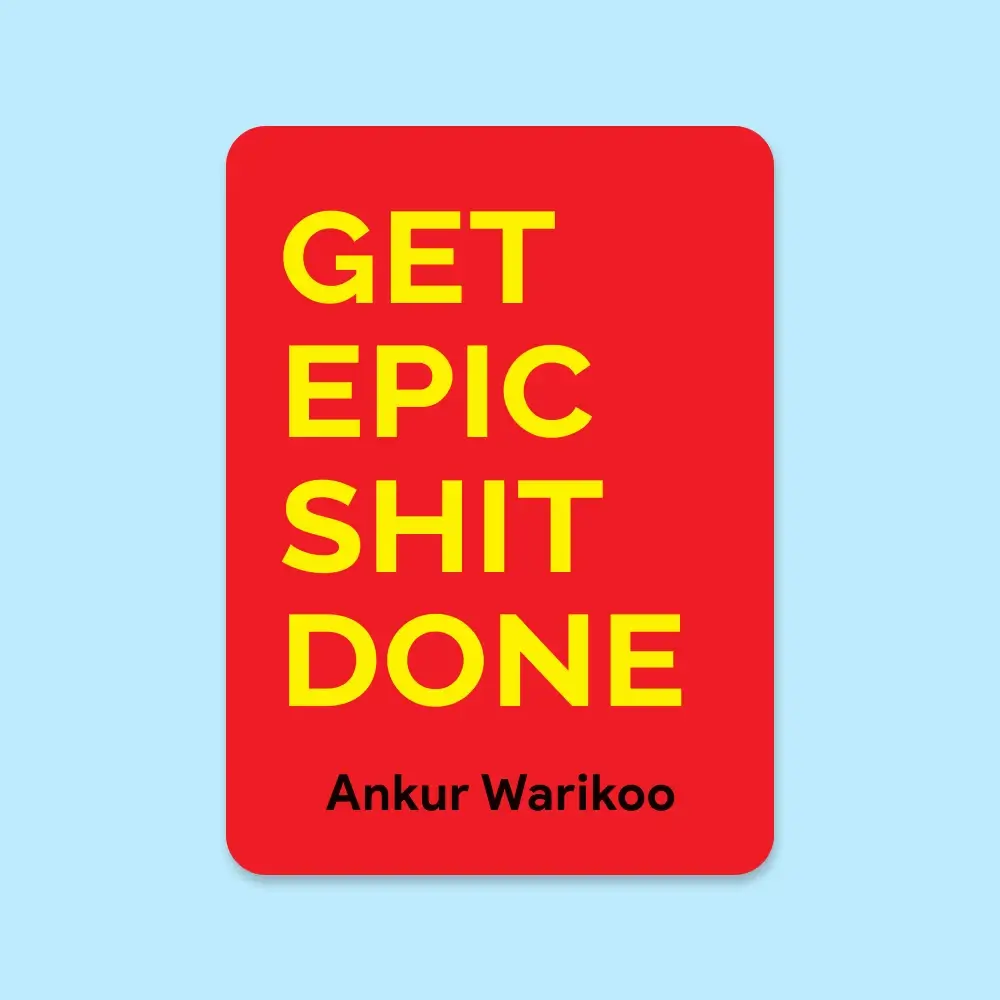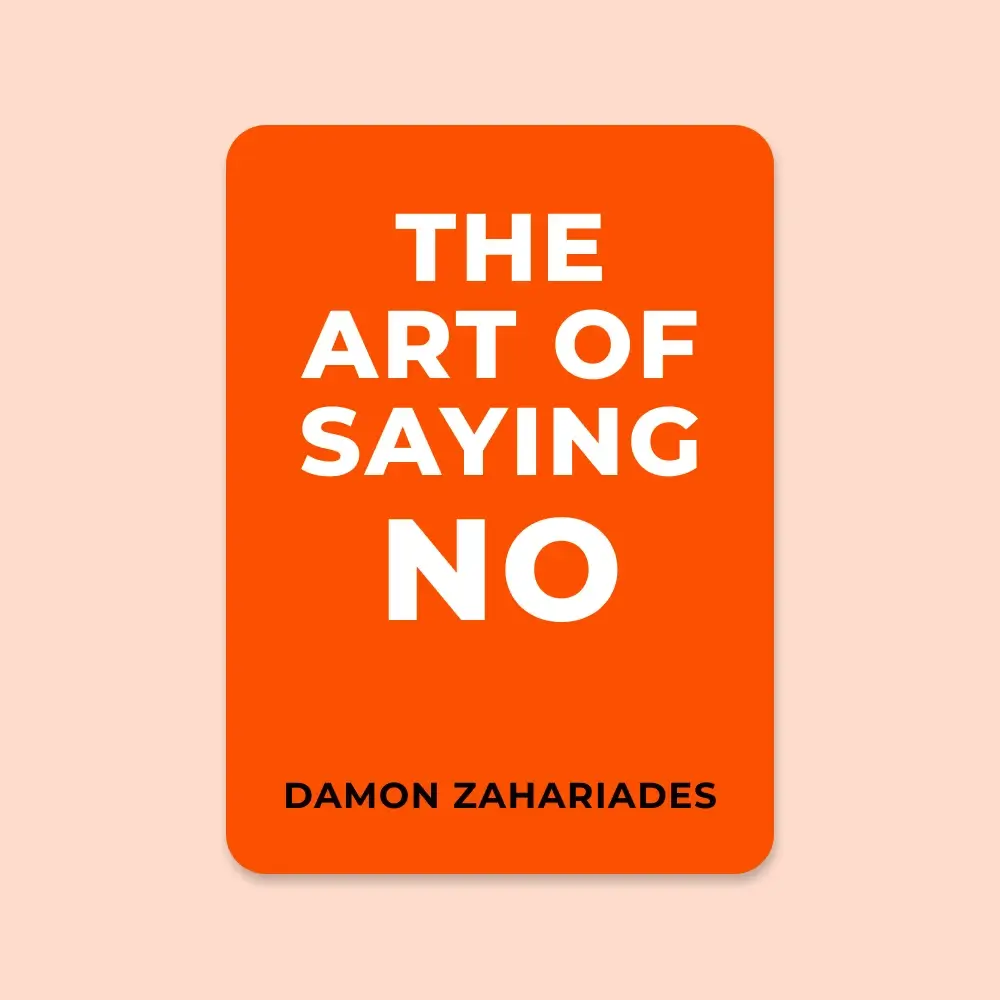
Think Like a Monk
If you want a new idea, read an old book.—attributed to Ivan Pavlov (among others)
-
Albert Einstein said, “If you can’t explain something simply, you don’t understand it well enough.”
-
Today we all struggle with overthinking, procrastination, and anxiety as a result of indulging the monkey mind. The monkey mind switches aimlessly from thought to thought, challenge to challenge, without really solving anything.
“What did you learn in your first day of school?” “I started to learn the alphabet and numbers. What did they learn?” “The first thing we teach them is how to breathe.” “Why?” I asked. “Because the only thing that stays with you from the moment you’re born until the moment you die is your breath. All your friends, your family, the country you live in, all of that can change. The one thing that stays with you is your breath.”
- “When you get stressed—what changes? Your breath. When you get angry—what changes? Your breath. We experience every emotion with the change of the breath. When you learn to navigate and manage your breath, you can navigate any situation in life.”
It is better to live your own destiny imperfectly than to live an imitation of somebody else’s life with perfection.—Bhagavad Gita 3.35
Charles Horton Cooley wrote: “I am not what I think I am, and I am not what you think I am. I am what I think you think I am.”
-
Our identity is wrapped up in what others think of us—or, more accurately, what we think others think of us.
-
When you try to live your most authentic life, some of your relationships will be put in jeopardy. Losing them is a risk worth bearing; finding a way to keep them in your life is a challenge worth taking on.
-
When we tune out the opinions, expectations, and obligations of the world around us, we begin to hear ourselves.
-
Every time you move homes or take a different job or embark on a new relationship, you have a golden opportunity to reinvent yourself.
It is impossible to build one’s own happiness on the unhappiness of others.—Daisaku Ikeda
-
When we criticize others, we can’t help but notice the bad in ourselves. But when we look for the good in others, we start to see the best in ourselves too.
-
Don’t judge someone with a different disease. Don’t expect anyone to be perfect. Don’t think you are perfect.
-
When someone hurts you, it’s because they’re hurt. Their hurt is simply spilling over. They need help. And as the Dalai Lama says, “If you can, help others; if you cannot do that, at least do not harm them.”
-
“Letting go gives us freedom, and freedom is the only condition for happiness. If, in our heart, we still cling to anything—anger, anxiety, or possessions—we cannot be free.”
-
The more we define ourselves in relation to the people around us, the more lost we are.
-
What we judge or envy or suspect in someone else can guide us to the darkness we have within ourselves.
-
Remember, saying whatever we want, whenever we want, however we want, is not freedom. Real freedom is not feeling the need to say these things.
-
“There is toxicity everywhere around us. In the environment, in the political atmosphere, but the origin is in people’s hearts. Unless we clean the ecology of our own heart and inspire others to do the same, we will be an instrument of polluting the environment. But if we create purity in our own heart, then we can contribute great purity to the world around us.”
-
Giving and receiving forgiveness both have health benefits.
-
When we wrap our heads around the fact that we can’t undo the past, we begin to accept our own imperfections and mistakes, forgive ourselves, and, in doing so, open ourselves up to the emotional healing we all yearn for.
-
If you want the negativity between yourself and another person to dissipate, you have to hope that you both heal. You don’t have to tell them directly, but send the energy of well-wishing out into the air. This is when you feel most free and at peace—because you’re truly able to let go.
-
The less time you fixate on everyone else, the more time you have to focus on yourself.
Fear does not prevent death. It prevents life.—Buddha
-
We can use fear to get to the best of us.
-
We waste a lot of time and energy trying to stay in the comfortable bubble of our self-made Biospheres. We fear the stresses and challenges of change, but those stresses and challenges are the wind that makes us stronger.
-
If we can stop viewing stress and the fear that often accompanies it as negative and instead see the potential benefits, we’re on our way to changing our relationship with fear.
-
When you deal with fear and hardship, you realize that you’re capable of dealing with fear and hardship. This gives you a new perspective: the confidence that when bad things happen, you will find ways to handle them. With that increased objectivity, you become better able to differentiate what’s actually worth being afraid of and what’s not.
-
In order to change our relationship with fear, we have to change our perception of it.
-
When you panic, you start to anticipate outcomes that have not yet come to pass. Fear makes us fiction writers.
-
The Roman Stoic philosopher Seneca observed that “Our fears are more numerous than our dangers, and we suffer more in our imagination than reality.”
-
Life isn’t a collection of unrelated events, it’s a narrative that stretches into the past and the future.
-
“What you run from only stays with you longer,” writes the author of the novel Fight Club, Chuck Palahniuk, in his book Invisible Monsters Remix. “Find what you’re afraid of most and go live there.”
-
Fear motivates us. Sometimes it motivates us toward what we want, but sometimes, if we aren’t careful, it limits us with what we think will keep us safe.
When there is harmony between the mind, heart, and resolution then nothing is impossible—Rig Veda
-
Fear alerts and ignites us. This warning flare is useful—as we discussed, fear points out problems and sometimes motivates us.
-
We think that success equals happiness, but this idea is an illusion. The Sanskrit word for illusion is maya, which means believing in that which is not. When we let achievements and acquisitions determine our course, we’re living in the illusion that happiness comes from external measures of success, but all too often we find that when we finally get what we want, when we find success, it doesn’t lead to happiness.
-
“As long as we keep attaching our happiness to the external events of our lives, which are ever changing, we’ll always be left waiting for it.”
-
In the same way, money and fame are only a facade. Because our search is never for a thing, but for the feeling we think the thing will give us.
-
Happiness and fulfillment come only from mastering the mind and connecting with the soul—not from objects or attainments. Success doesn’t guarantee happiness, and happiness doesn’t require success. They can feed each other, and we can have them at the same time, but they are not intertwined.
-
We all have different goals, but we all want the same things: a life full of joy and meaning.
-
Happiness can be elusive—it’s hard to sustain a high level of joy. But to feel meaning shows that our actions have purpose. They lead to a worthwhile outcome.
-
“Money and mansions are not the only wealth. Hoard the wealth of the spirit. Character is wealth: good conduct is wealth; and spiritual wisdom is wealth.”
In her book The Upside of Stress, author Kelly McGonigal says that we can better handle discomfort when we can associate it with a goal, purpose, or person we care about.
-
When we perform work with the conviction that what we do matters, we can live intensely. Without a reason for moving forward, we have no drive. When we live intentionally—with a clear sense of why what we do matters—life has meaning and brings fulfillment.
-
To live intentionally, we must dig to the deepest why behind the want. This requires pausing to think not only about why we want something, but also who we are or need to be to get it, and whether being that person appeals to us.
-
When you follow the whys, keep digging. Every answer provokes deeper questions. Sometimes it helps to sit with a question in the back of your mind for a day, even a week. Very often you’ll find that what you are ultimately searching for is an internal feeling (happiness, security, confidence, etc.). Or maybe you’ll find that you’re acting out of envy, not the most positive emotion, but a good alert to the need you are trying to fill. Be curious about that discovery.
-
“I wish” is code for “I don’t want to do anything differently.”
-
But life is more meaningful when we define ourselves by our intentions rather than our achievements.
-
Once you know the why behind the want, consider the work behind the want.
-
Failure doesn’t mean you’re worthless—it means you must look for another route to achieving worthwhile goals.
-
Satisfaction comes from believing in the value of what you do.
-
When people gain what they want but aren’t happy at all, it’s because they did it with the wrong intention.
-
With the right intention, to serve, we can feel meaning and purpose every day.
-
Living intentionally means stepping back from external goals, letting go of outward definitions of success, and looking within.
-
In getting you where you want to be, meditation may show you what you don’t want to see.
-
When you align with your breath, you learn to align with yourself through every emotion—calming, centering, and de-stressing yourself.
When you protect your dharma, your dharma protects you.—Manusmriti 8:15
-
We need flexibility in order to access every corner of study and growth.
-
Living in your dharma is a certain route to fulfillment.
-
Passion + Expertise + Usefulness = Dharma.
-
If we’re only excited when people say nice things about our work, it’s a sign that we’re not passionate about the work itself.
-
You can’t be anything you want. But you can be everything you are.
-
Your dharma is already with you. It’s always been with you. It’s woven into your being. If we keep our minds open and curious, our dharmas announce themselves.
-
Pay attention, cultivate self-awareness, feed your strengths, and you will find your way. And once you discover your dharma, pursue it.
-
“Your time is limited, so don’t waste it living someone else’s life.”
-
Our society is set up around strengthening our weaknesses rather than building our strengths.
Sister Joan Chittister, a Benedictine nun, wrote, “It is trust in the limits of the self that makes us open and it is trust in the gifts of others that makes us secure. We come to realize that we don’t have to do everything, that we can’t do everything, that what I can’t do is someone else’s gift and responsibility.… My limitations make space for the gifts of other people.”
-
Play hardest in your area of strength and you’ll achieve depth, meaning, and satisfaction in your life.
-
The intention with which we approach our work has a tremendous impact on the meaning we gain from it and our personal sense of purpose. Learn to find meaning now, and it will serve you all your life.
-
Self-awareness gives you more focus.
-
Our heads might try to convince us that we’ve only ever made the best choices, but our true nature—our passion and purpose—isn’t in our heads, it’s in our hearts. In fact, our heads often get in the way of our passions.
-
To build your competence without regard for character is narcissistic, and to build character without working on skills is devoid of impact. We need to work on both in order to serve our souls and a higher purpose.
Every day, think as you wake up, today I am fortunate to be alive, I have a precious human life, I am not going to waste it. —the Dalai Lama
-
The emotion you fall asleep with at night is most likely the emotion you’ll wake up with in the morning.
-
There’s something to learn in everything. Life isn’t as certain as we assume.
-
If you don’t have structure, you’re just aimlessly doing stuff.” Rules and routines ease our cognitive burden so we have bandwidth for creativity. Structure enhances spontaneity. And discovery reinvigorates the routine.
-
To walk down the same old path and find a new stone is to open your mind.
-
“When you drink your food, grind the solids into liquid. When you chew your drink, instead of gulping it down take each sip as if it is a morsel to be savored.”
-
“Yesterday is but a dream. Tomorrow is only a vision. But today well lived makes every yesterday a dream of happiness, and every tomorrow a vision of hope.”
-
Being present is the only way to live a truly rich and full life.
-
When we do something at the same time every day, that time keeps that memory for us. It holds the practice. It saves the space.
-
Location has energy; time has memory.
-
If you do something at the same time every day, it becomes easier and natural.
-
If you do something in the same space every day, it becomes easier and natural.
-
Time and location help us maximize the moment, but there is one essential component to being wholly present in that moment: single-tasking.
-
When we think we’re multitasking, what’s usually happening is that we’re shifting rapidly among several different things, or “serial tasking.” This fragmented attention actually erodes our ability to focus, so doing just one thing at a time without distraction becomes harder.
-
If something is important, it deserves to be experienced deeply. And everything is important.
When the five senses and the mind are stilled, when the reasoning intellect rests in silence, then begins the highest path. —the Katha Upanishad
-
“For him who has conquered the mind, the mind is the best of friends; but for one who has failed to do so, his very mind will be the greatest enemy.”
-
As with all parent-child relationships, striking the right balance is an ongoing challenge.
-
From a monk’s perceptive, the greatest power is self-control, to train the mind and energy, to focus on your dharma.
Psychologist Linda Sapadin adds that talking to yourself “helps you clarify your thoughts, tend to what’s important and firm up any decisions you’re contemplating.”
-
Use the awareness of what deep pain really is to keep smaller disruptions in perspective.
-
Treat yourself with the same love and respect you want to show to others.
-
Only by detaching can we truly gain control of the mind.
-
“Detachment is not that you own nothing, but that nothing should own you.”
They are forever free who renounce all selfish desires and break away from the ego cage of “I,”“me,” and “mine”—Bhagavad Gita, 2:71
-
The real ego is our very essence—the consciousness that makes us aware and awake to reality.
-
We are a certain person at home, alone, but we present the world with another version of ourselves.
-
If you are satisfied with who you are, you don’t need to prove your worth to anyone else.
-
“You are who you are when no one is watching.”
-
When we bluff our way through life, pretending to be who we are not, we end up looking worse than we truly are.
-
The arrogant ego desires respect, whereas the humble worker inspires respect.
-
In the act of criticizing others for failing to live up to higher standards, we ourselves are failing to live up to the highest standards.
-
If you don’t break your ego, life will break it for you.
-
The ego is two-faced. One moment it tells us we’re great at everything, and the next moment it tells us we’re the worst.
-
Remembering your mistakes and forgetting your achievements restrains the ego and increases gratitude—a simple, effective recipe for humility.
-
“What belongs to you today, belonged to someone yesterday and will be someone else’s tomorrow.”
-
Humility allows you to see your own strengths and weaknesses clearly, so you can work, learn, and grow.
-
You are not your success or your failure.
-
The moment you feel like you have arrived, you’re starting the journey again. This paradox is true for many things: If you feel safe, that’s when you’re most vulnerable; if you feel infallible, that’s when you’re at your weakest.
-
The most powerful, admirable, captivating quality in any human is seen when they’ve achieved great things, but still embrace humility and their own insignificance.
Appreciate everything, even the ordinary. Especially the ordinary. —Pema Chödrön
-
When you’re present in gratitude, you can’t be anywhere else.
-
“Once you start seeing things to be grateful for, your brain starts looking for more things to be grateful for.” It’s a “virtuous cycle.”
-
Allow the journey of life to progress at its own pace and in its own roundabout way. The universe may have other plans in store for you.
Helen Keller, who became deaf and blind as a toddler after an unidentified illness, wrote, “When one door of happiness closes, another opens; but often we look so long at the closed door that we do not see the one which has been opened for us.”
- Taking a broader view helps us minimize our pain and appreciate what we have, and we directly access this broader view by giving.
Every person is a world to explore. —Thich Nhat Hanh
-
Whenever you give out any energy—love, hate, anger, kindness—you will always get it back. One way or another. Love is like a circle. Whatever love you give out, it always comes back to you.
-
Too often we love people who don’t love us, but we fail to return the love of others who do.
-
Real care means they are thinking about what is best for you, not what is best for them. They care about your well-being, not your success. They have your best interests at heart. They believe in you.
-
“People come into your life for a reason, a season or a lifetime.”
-
If the seed of trust is not planted effectively in the beginning, we grow a weed of mistrust and betrayal.
-
The biggest mistake we make is to assume that everyone else operates just like us. We believe that others value what we value. We believe that what we want in a relationship is what others want in a relationship.
-
Listening is one of the most thoughtful gifts we can give. There is no better way to show that we care about another person’s experience.
-
Until you understand yourself, you won’t be ready for love.
-
Nobody completes you. You’re not half. You don’t have to be perfect, but you have to come to a place of giving.
-
In every relationship you have the opportunity to set the level of joy you expect and the level of pain you’ll accept.
-
If you’ve lost yourself in the relationship, find yourself in the heartbreak.
The ignorant work for their own profit… the wise work for the welfare of the world…—Bhagavad Gita, 3:25
-
The highest purpose is to live in service.
-
We seek to leave a place cleaner than we found it, people happier than we found them, the world better than we found it.
-
The act of giving to others activates the pleasure center of our brain. It’s win-win-win. This may be why those who help others tend to live longer, be healthier, and have a better overall sense of well-being.
-
You don’t have to have to give.
-
Service is the direct path to a meaningful life.
-
Life begins with breath, breath carries you through all your days, and life and breath end together.
-
Reflecting on the knowledge that we will die someday compels us to value the time we have and to spend our energy thoughtfully.



